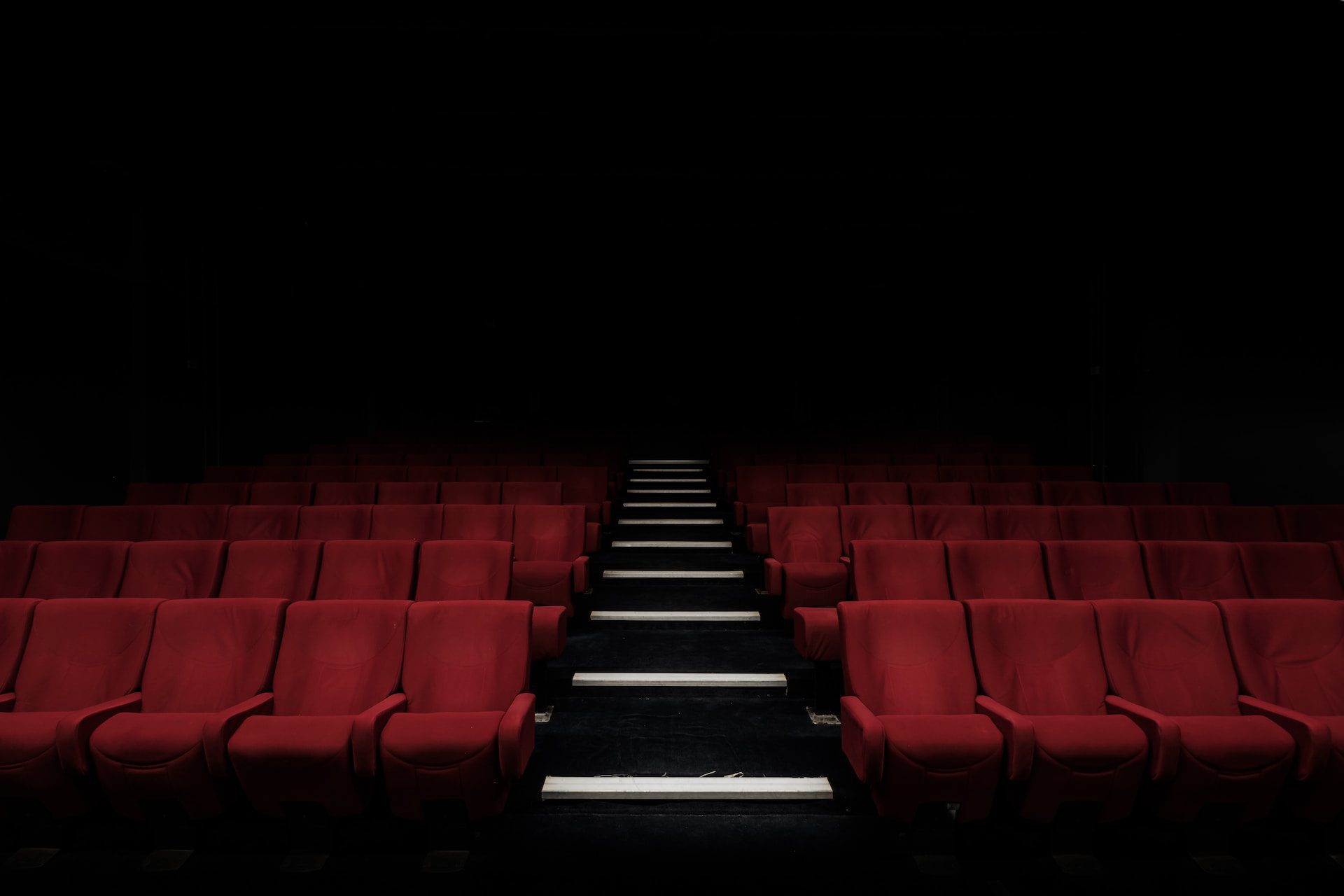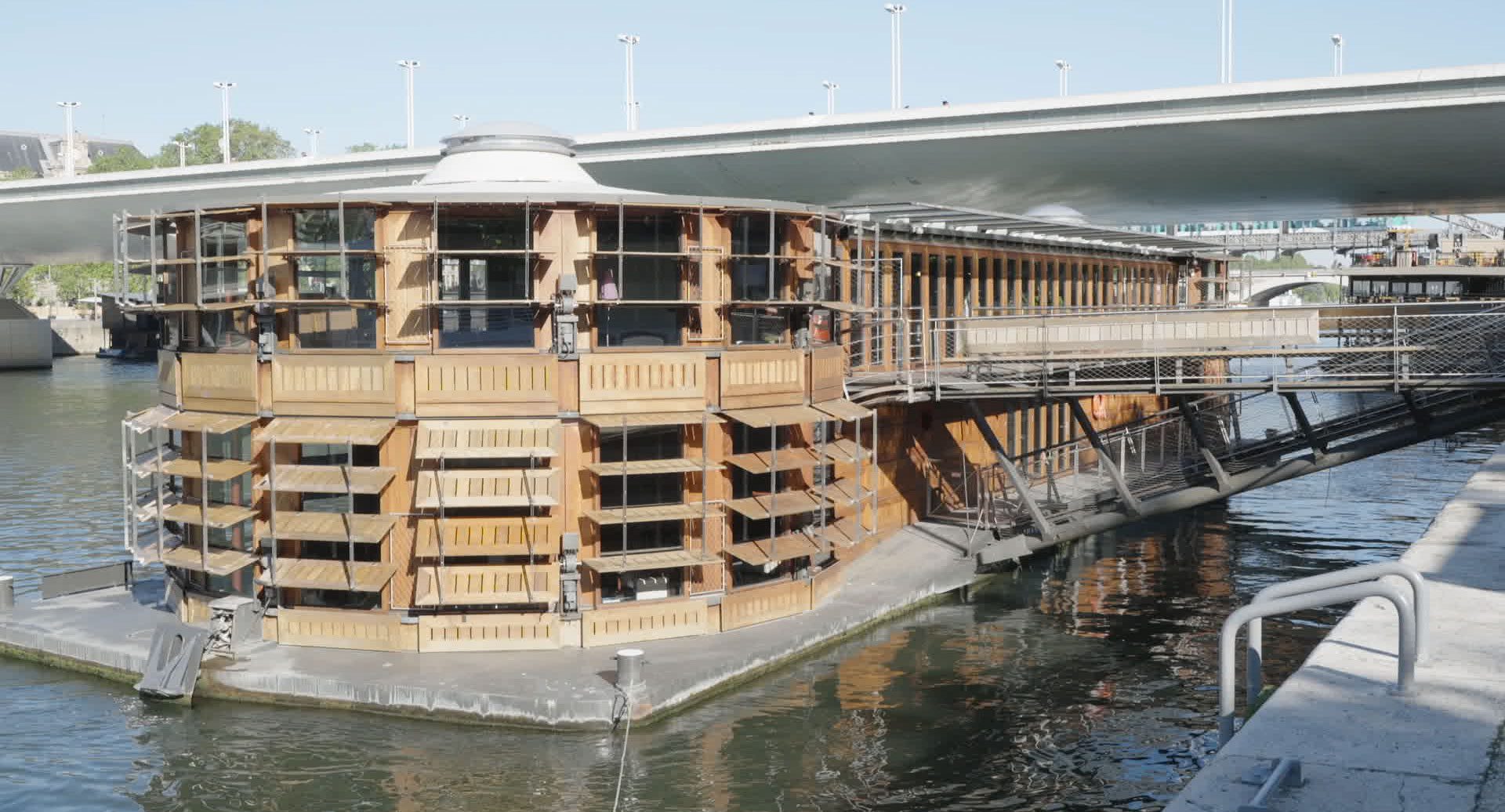
When does a house cease being a home?
This question lies at the heart of?The Nest, a powerful and unflinching look at the emotional termites that can eat away at the foundations of a marriage. Written and directed by Sean Durkin (Martha Marcy May Marlene),?The Nest?follows Rory (Jude Law) and Allison (Carrie Coon), married parents who enjoy a solid relationship built on intimacy and trust. Set in 1986, Rory and Allison live in a New York suburb and are the picture of middle-class success. However, when Rory receives an invitation to take a higher profile (and potentially higher paying) job back to his hometown of London, he convinces Allison that this will be best for them all. Renting an extravagant English country manor, everything starts out well for the family. However, as time marches on and debt piles up, Rory and Allison unspoken frustrations begin to bubble to the surface that threaten their entire relationship.
As he reflects on where his vision for the film came from, Durkin says that the idea stemmed from his own childhood move and his desire to explore the effect that that can have on a family.
?When I was a kid, I moved from England to New York,? he begins. ?It was early nineties and it was a very, very stark change in atmosphere. The two places are so different, much more so than now. Now, it’s very seamless. So, I think I was reflecting on that time and that very sudden life change and wanted to explore a family making that move in that time. As I started to dig more into it, I decided to focus more on the marriage and explore a marriage that was really two characters, like a 50/50 movie. It’s not some big tragedy. It’s just trying to get into how a family stays together through this move. It really grew out of that.??
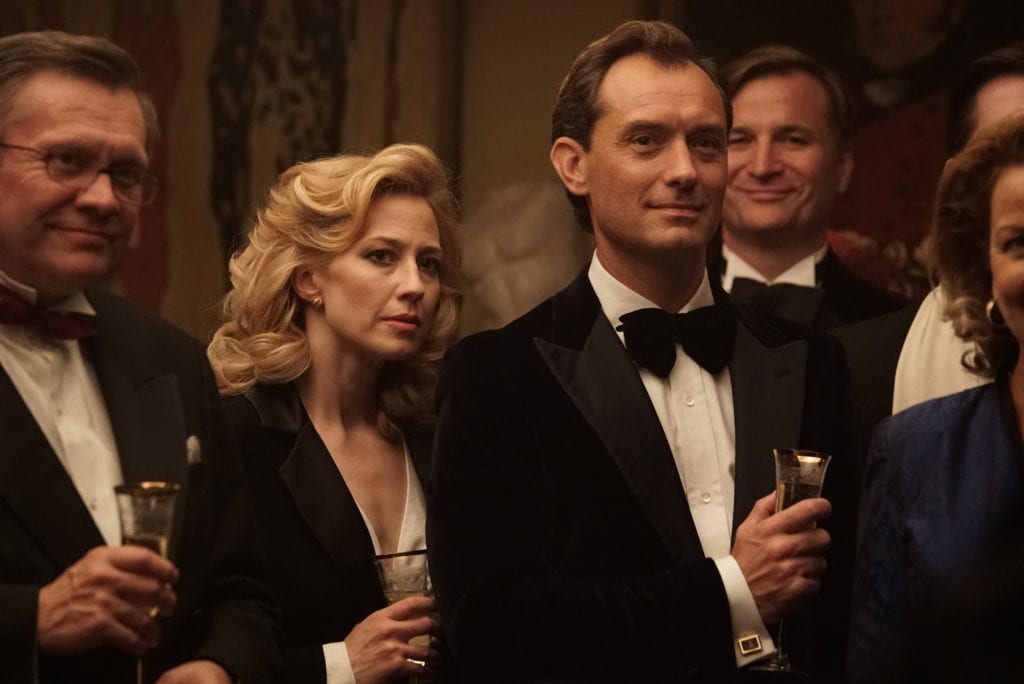
Having experienced the move between from America to Europe himself, Durkin had much to draw on in terms of the vast distinctions between the two worlds. However, when looking at the cultures today, he believes that those lines are to difficult to identify and that the differences between them were far more prominent during the period in which the film is set.
?I don’t quite feel comfortable boiling [the differences] down,? Durkin reveals. ?I think, especially with this, they were very different places at that time, and they’re much more similar today. I think that moment in time I chose to set [the film in] was the beginning of that. From that point on, they began to become more and more similar. There are still big differences, but there’s also a lot of similarities.??
Set in the mid-1980s,?The Nest?also reveals the tensions between gender roles that existed during that era. Though his characters are both strong and confident, Durkin feels that the ultimate struggle of their motivations stems from the expectations that they have been handed by their respective cultures growing up.
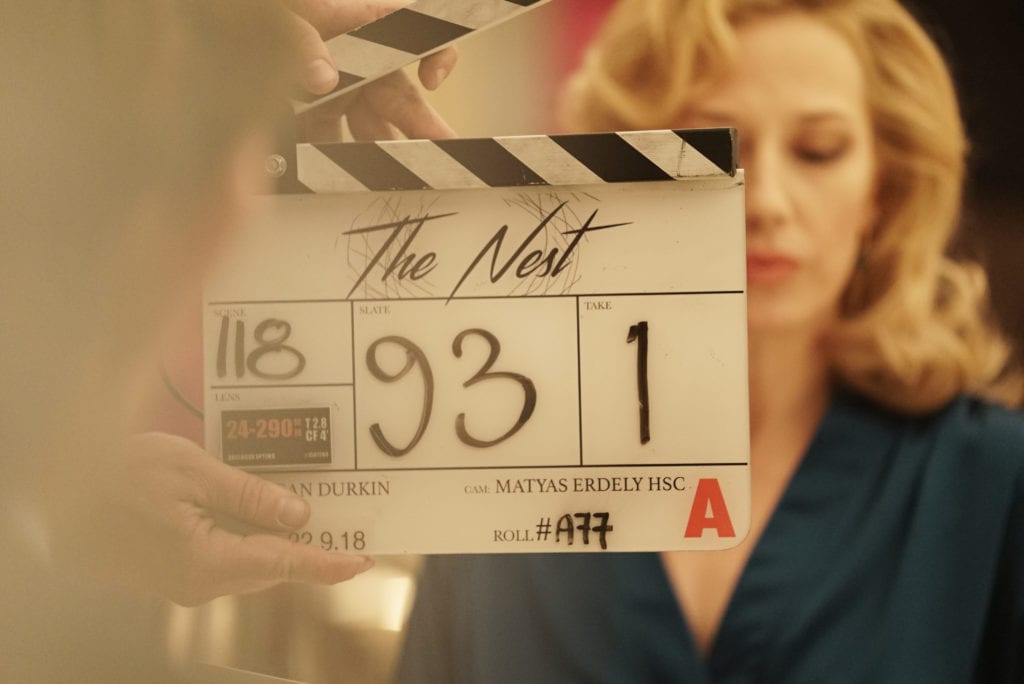
?What I wanted to look at here was you have two people in a relationship that are both handed a set of values,? he asserts. ?You get a glimpse of what their family’s values are. You get a glimpse of where they came from. You get a glimpse of the time period. These ideas are given to them by their families and the society they’ve grown up in. They’re chasing these dreams. Within that, there are dynamics that they are both handed. What I wanted us to do is explore those dynamics. For Rory, it was the sense of being a father and being the man of the house and having the most success possible [which] meant giving your family the best life you can and being as successful as you possibly can. For Alison, the values given to her are ‘stand by your man’. Both things sort of go against their truer nature of their characters so the film is about them battling themselves and each other to get to a more truthful place. All the things I just mentioned were really at their height in the mid-80s., It was a really transitional time for those expectations in marriage in general.?
Shot primarily inside the walls of a stunning Victorian manor, the proverbial ?nest? almost becomes a character unto itself within the film. Though awesome to behold, the building increasingly becomes less of a home and more of a prison as the characters are slowly swallowed by their surroundings. When searching for the right manor, Durkin and his team wanted to ensure that the environment exhibited the proper balance of daunting and inviting.
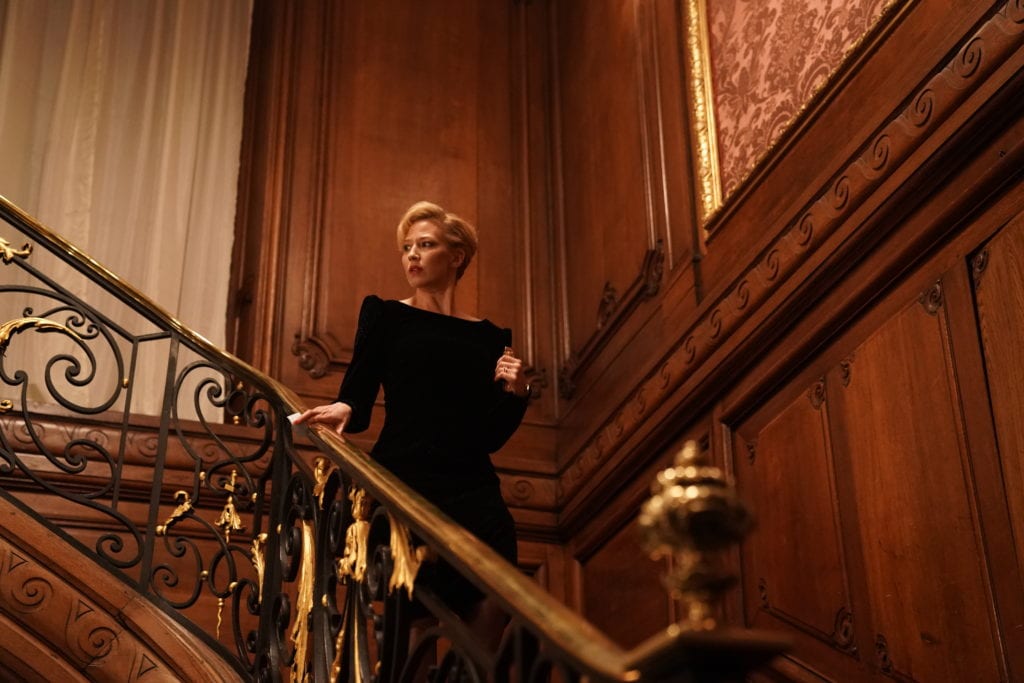
?We wanted to find a place that was overwhelmingly large, far beyond the wealthiest traders working in London… and somewhere that then has this atmosphere of [being] too big [and] scary.,? he explains. ?[We wanted to] create and use genre elements without going into genre [where it’s] scary to live in this house and what’s haunting it is this ambition is this sense of unrest that’s within her and the family. So, it was really, it was really important to find the right blend and to not show up and it be a castle… It was really beautiful, but certainly more in that normal, trader commuter realm.?
?My production designer James Price, is just an expert at British architecture and understanding where those lines were and when a house was built. This house is 700 years old and the amazing thing about these places is that the people who live there, their families have been in there for 400 or 500 years. So, they actually know all about their ancestors and all of their family stories. It’s a very strange history involved, but you can really feel that history in these places. The atmosphere is thick.??
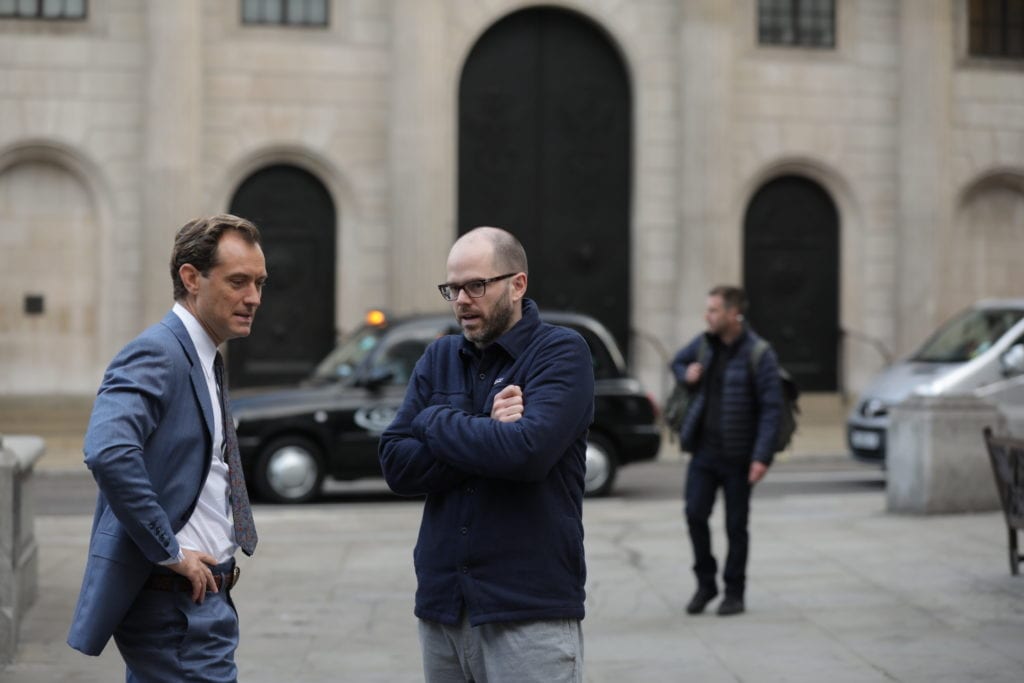
With its emphasis on crushing one another for financial gain,?The Nest?is an exploration of the roots (and flaws) of our personal and professional dreams. Asked what he thinks the true nature of success may be, Durkin states that he believes those values are socially constructed and potentially misleading as well.
?Success is a construct of wherever you come from and what you’re given and what you think,? he argues. ?It’s not really real. I think that’s what the film is trying to get at. The funny thing is that, when the movie starts, life in America is completely successful. That’s the joke, right? They’re living in this very cozy home. The kids are settled. What more do you want there? So, it’s about this dream, and I think everyone creates different dreams. Societies create different dreams and [I’m] just looking to ask the question of what really is success? Is it just stopping and eating breakfast with your family???
As relationship between Rory and Allison begins to freefall, Durkin?reveals the pain that can be caused when our selfish ambitions take hold of our souls. Nevertheless, he also wants the film to offer a sense of hope to his audience by showcasing the ebs and flows that every marriage must endure.
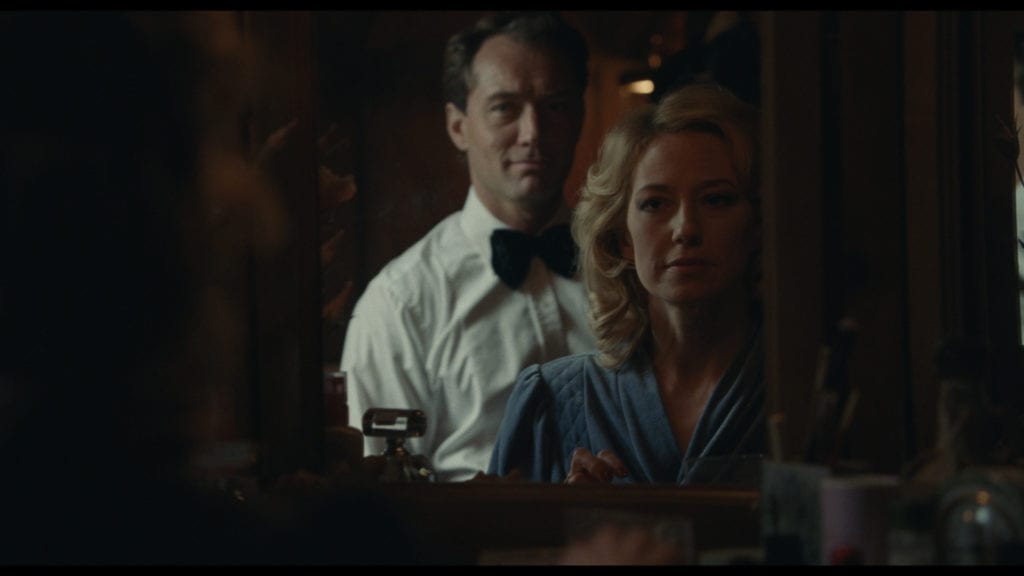
?Life and success are cyclical, right?,? Durkin considers. ?We all go through ups and downs, [be it] professionally, emotionally, family, [or] health. All of those things are in constant cycles and I think the thing that the characters in this movie are guilty of thinking that there’s a pot of gold at the end of the rainbow. Life isn’t like that. The film itself operates in a cycle of family breakfast to family breakfast in a way, you know? I definitely hope that there’s hope in that. My intention is to make something about a family staying together and how they stay together.?
To hear audio of our conversation with director Sean Durkin, click here.
The Nest is now playing in theatres and is available to rent on VOD.

